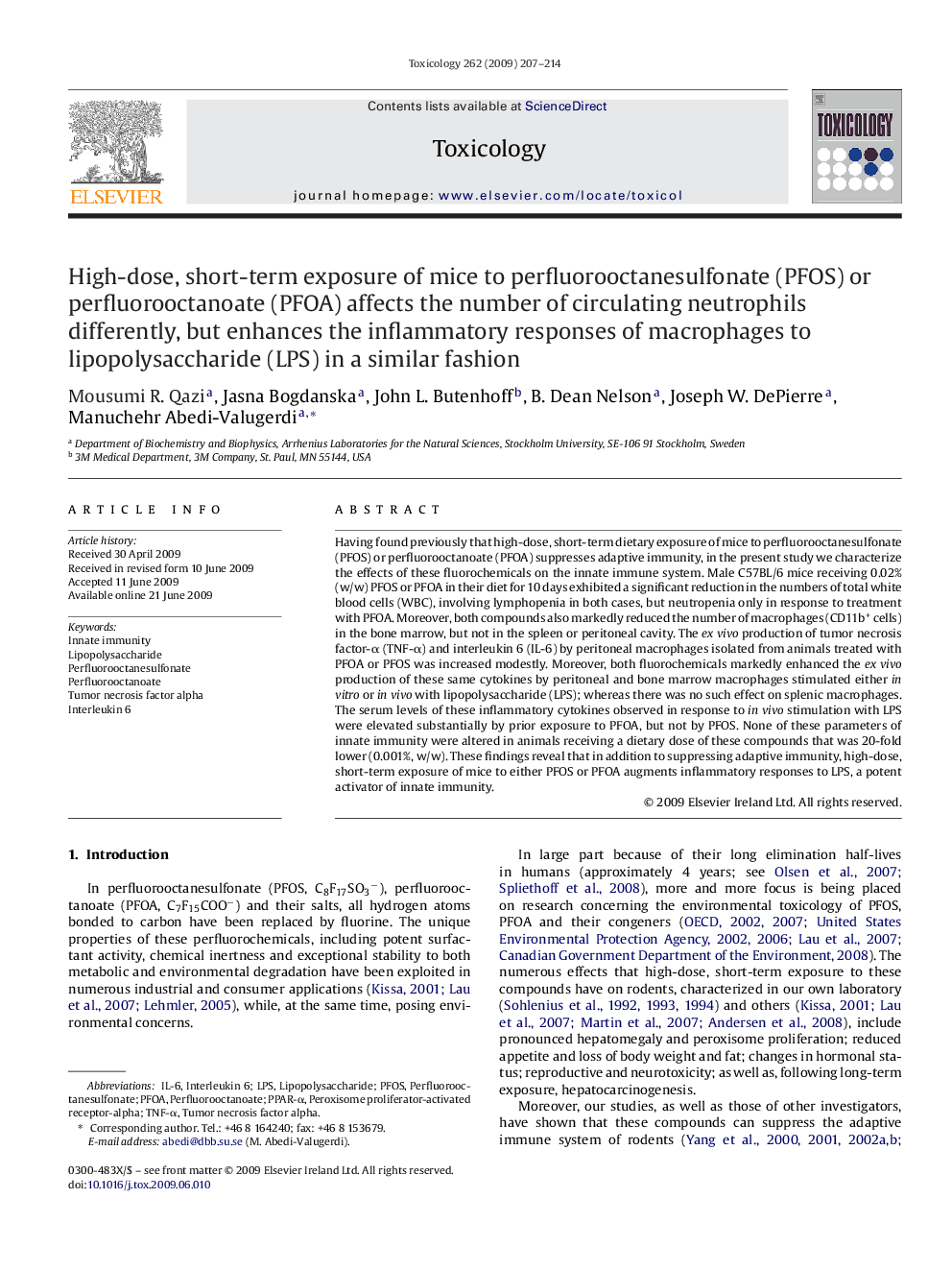| کد مقاله | کد نشریه | سال انتشار | مقاله انگلیسی | نسخه تمام متن |
|---|---|---|---|---|
| 2596677 | 1132542 | 2009 | 8 صفحه PDF | دانلود رایگان |

Having found previously that high-dose, short-term dietary exposure of mice to perfluorooctanesulfonate (PFOS) or perfluorooctanoate (PFOA) suppresses adaptive immunity, in the present study we characterize the effects of these fluorochemicals on the innate immune system. Male C57BL/6 mice receiving 0.02% (w/w) PFOS or PFOA in their diet for 10 days exhibited a significant reduction in the numbers of total white blood cells (WBC), involving lymphopenia in both cases, but neutropenia only in response to treatment with PFOA. Moreover, both compounds also markedly reduced the number of macrophages (CD11b+ cells) in the bone marrow, but not in the spleen or peritoneal cavity. The ex vivo production of tumor necrosis factor-α (TNF-α) and interleukin 6 (IL-6) by peritoneal macrophages isolated from animals treated with PFOA or PFOS was increased modestly. Moreover, both fluorochemicals markedly enhanced the ex vivo production of these same cytokines by peritoneal and bone marrow macrophages stimulated either in vitro or in vivo with lipopolysaccharide (LPS); whereas there was no such effect on splenic macrophages. The serum levels of these inflammatory cytokines observed in response to in vivo stimulation with LPS were elevated substantially by prior exposure to PFOA, but not by PFOS. None of these parameters of innate immunity were altered in animals receiving a dietary dose of these compounds that was 20-fold lower (0.001%, w/w). These findings reveal that in addition to suppressing adaptive immunity, high-dose, short-term exposure of mice to either PFOS or PFOA augments inflammatory responses to LPS, a potent activator of innate immunity.
Journal: Toxicology - Volume 262, Issue 3, 21 August 2009, Pages 207–214